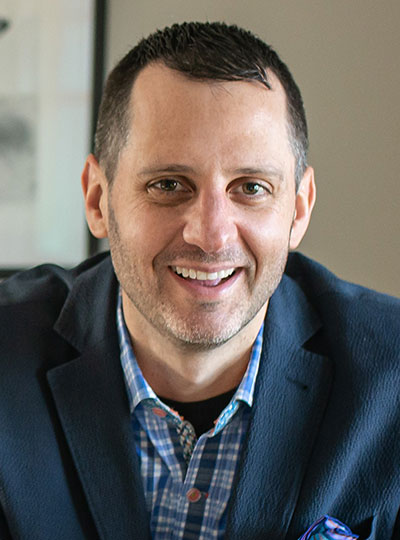|
By: Adam Greenberg, LCSW  In recent years, a groundbreaking approach to mental health treatment has emerged, blending the ancient wisdom of psychedelic substances with modern therapeutic techniques. Psychedelic-assisted therapy, often coupled with the concept of neuroplasticity, is revolutionizing how we understand and treat mental health disorders. This innovative approach not only benefits patients but also offers new insights and tools for mental health clinicians.
Understanding Psychedelic-Assisted Therapy
Psychedelic substances like psilocybin (found in magic mushrooms), MDMA (commonly known as ecstasy), LSD, and ayahuasca have been used for centuries in various cultural and spiritual practices. However, their therapeutic potential has gained significant attention in contemporary psychiatry. Psychedelic-assisted therapy involves administering these substances in controlled settings under the guidance of trained therapists to enhance the therapeutic process.
The Role of Neuroplasticity
Neuroplasticity refers to the brain's ability to reorganize itself by forming new neural connections throughout life. This concept challenges the traditional notion that the brain's structure and function are static after a certain age. Psychedelic substances have been found to promote neuroplasticity by altering brain networks and enhancing synaptic plasticity, leading to profound therapeutic effects.
Benefits for Mental Health
-
Treatment-Resistant Conditions: Research indicates that psychedelic-assisted therapy can be particularly effective for treatment-resistant conditions such as severe depression, PTSD, addiction, and anxiety disorders. Studies have shown significant improvements in symptoms and long-lasting therapeutic effects even after limited treatment sessions.
-
Enhanced Emotional Processing: Psychedelics can facilitate deep emotional processing by promoting introspection, emotional release, and insights into underlying psychological issues. This can lead to profound healing experiences and a shift in perspective, helping individuals break free from negative thought patterns and behaviors.
-
Ego Dissolution: Some psychedelics induce experiences of ego dissolution, where the sense of self and ego boundaries temporarily dissolve. This can be therapeutically beneficial by allowing individuals to explore their identity, connect with their innermost emotions, and experience a sense of interconnectedness with others and the universe.
-
Reduced Fear and Anxiety: Studies on psychedelics like psilocybin have shown a reduction in fear responses and amygdala activity, which are associated with anxiety disorders. This calming effect can help individuals confront and process traumatic experiences or fears in a safe and supported environment.
-
Spiritual and Existential Insights: Many individuals report profound spiritual or existential experiences during psychedelic sessions, leading to increased feelings of meaning, purpose, and interconnectedness. These insights can contribute to improved overall well-being and a sense of transcendence beyond immediate mental health symptoms.
Benefits for Mental Health Clinicians
-
Expanded Treatment Options: Psychedelic-assisted therapy expands the toolkit for mental health clinicians, providing an additional modality for treating conditions that may not respond adequately to traditional therapies.
-
Personal and Professional Growth: Working with psychedelics requires specialized training and a deep understanding of both the substances and the therapeutic process. Mental health clinicians engaging in this field often experience personal and professional growth, honing their skills in trauma-informed care, empathy, and therapeutic presence.
-
Research and Innovation: The resurgence of psychedelic research has sparked innovative approaches in mental health treatment, leading to collaborations between clinicians, researchers, and institutions. This interdisciplinary synergy fosters continuous learning and the development of evidence-based practices.
-
Reduced Stigma: As psychedelic-assisted therapy gains acceptance and recognition within the mental health community, it contributes to reducing the stigma associated with both mental health disorders and psychedelic substances. This shift allows for more open discussions, research funding, and mainstream integration of these therapeutic modalities.
-
Empowering Patients: By offering psychedelic-assisted therapy, mental health clinicians empower patients to explore alternative healing pathways and participate actively in their treatment journey. This collaborative approach fosters trust, autonomy, and empowerment among individuals seeking mental health support.
Conclusion
Psychedelic-assisted therapy, coupled with the understanding of neuroplasticity, holds immense promise for transforming mental health treatment paradigms. Its benefits extend not only to patients, who experience profound therapeutic breakthroughs, but also to mental health clinicians, who gain new tools, insights, and opportunities for professional growth. As research in this field continues to advance, psychedelic-assisted therapy is poised to play a significant role in promoting mental health and well-being in the years to come.
Sources:
- Carhart-Harris RL, Nutt DJ. Serotonin and brain function: a tale of two receptors. J Psychopharmacol. 2017;31(9):1091-1120. doi:10.1177/0269881117725915
- Davis AK, Barrett FS, Griffiths RR. Psychological flexibility mediates the relations between acute psychedelic effects and subjective decreases in depression and anxiety. J Contextual Behav Sci. 2020;18:126-134. doi:10.1016/j.jcbs.2020.03.007
- Mithoefer MC, Grob CS, Brewerton TD. Novel psychopharmacological therapies for psychiatric disorders: psilocybin and MDMA. Lancet Psychiatry. 2016;3(5):481-488. doi:10.1016/S2215-0366(15)00576-3
- Nichols DE, Johnson MW, Nichols CD. Psychedelics as medicines: an emerging new paradigm. Clin Pharmacol Ther. 2017;101(2):209-219. doi:10.1002/cpt.459
- Sampedro F, de la Fuente Revenga M, Valle M, et al. Assessing the psychedelic "after-glow" in ayahuasca users: post-acute neurometabolic and functional connectivity changes are associated with enhanced mindfulness capacities. Psychopharmacology (Berl). 2017;234(23-24):4271-4283. doi:10.1007/s00213-017-4733-3
About the Author...
Mr. Greenberg is dedicated to his clients' well-being, guiding them through life's challenges, including anxiety, depression, communication issues, couple conflicts, and more. He offers a variety of coping strategies and emotional support.
What sets him apart from other therapists, is his ability to implement humor into therapy, promoting a positive perspective on adversity. With a passion for helping others, his diverse career experiences enable him to connect with individuals from various backgrounds.
Mr. Greenberg graduated with honors from Fordham University Graduate School of Social Services. Prior to pursuing a career as a therapist, he accumulated a wealth of experience through approximately 15 diverse jobs spanning 4-5 distinct careers. This journey, complemented by extensive travel and cultural immersion, has uniquely shaped Mr. Greenberg, enabling him to connect with individuals from a wide array of ethnic and cultural backgrounds.
Click here to contact or learn more about Adam Greenberg Last Update: 3/19/2024
|

